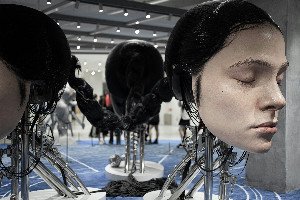Budi Setiabudiawan, Juwalita Surapsari, Melissa Stephanie Kartjito, Nova Sitorus, Charisma Dilantika, Ray Wagiu Basrowi, Juandy Jo
Health Education to Improve Maternal Awareness on Soy-Based Infant Formula for Individuals with Cow’s Milk Allergy in Indonesia
Introduction
Health education to improve maternal awareness on soy-based infant formula for individuals with cow’s milk allergy in indonesia. Health education improves Indonesian mothers' awareness of soy-based infant formula for infants with cow's milk allergy. Learn how mothers' knowledge impacts nutritional choices.
Abstract
Background: Cow’s milk allergy is relatively common among Indonesian infantswho are not exclusively breastfed. Despite extensive hydrolyzed formula and aminoacid-based formula are the recommended nutrition for infants with moderate-tosevere illness, not all parents could provide those specialized formulas, presumablydue to the high cost, low availability and poor palatability. In that case, soy-basedinfant formula could be an alternative nutrition. However, it was unknown whetherIndonesian mothers were aware on that alternative nutrition. Objective: We therefore assessed the knowledge levels of mothers who participated in an online platform of PrimaKu on the usefulness of soy-based infant formula to support growthand development of children with cow’s milk allergy. Methods: The study subjectsappeared to have sufficient levels of knowledge on the usefulness of soy-based infant formula for children with cow’s milk allergy. Results: In addition, by increasing their knowledge on iron and fiber fortification in soy-based infant formula, e.g.,through regular academic presentations, mothers could be more selective in choosing alternative nutrition for children with cow’s milk allergy. Conclusion: Our studysuggested that Indonesian mothers who were active in the online platform of Primaku had sufficient levels of knowledge on the usefulness of soy-based protein formanaging children with cow’s milk allergy.
Review
This study addresses a pertinent public health issue in Indonesia: the nutritional management of infants with cow's milk allergy (CMA), particularly when specialized hydrolyzed or amino acid-based formulas are inaccessible due to cost, availability, or palatability. The proposed alternative of soy-based infant formula is a pragmatic consideration for resource-limited settings. The study's objective to assess maternal knowledge on soy-based formulas' usefulness is highly relevant, given the potential for these alternatives to fill a critical gap in infant nutrition. The finding that mothers on the PrimaKu online platform possess "sufficient levels of knowledge" could signify a positive foundation for health education initiatives aimed at improving infant health outcomes. While the study tackles an important topic, the abstract presents significant methodological ambiguities that hinder a full assessment of its scientific rigor. The "Methods" section, stating "The study subjects appeared to have sufficient levels of knowledge," is problematic as it presents a finding rather than describing the *process* of knowledge assessment. Critical details are missing, such as the specific tool used to measure knowledge, the criteria for "sufficient," or the study design beyond an online platform. Furthermore, the "Results" section's assertion that "by increasing their knowledge... mothers could be more selective" implies an intervention component, yet the stated objective was solely knowledge assessment. This raises questions about the study's scope and whether an intervention was conducted without being clearly defined. The reliance on mothers from a single online platform (PrimaKu) also limits the generalizability of these findings to the broader Indonesian maternal population, many of whom may lack internet access or engage with such platforms. To enhance the study's impact and clarity, several aspects require considerable revision. Future research should explicitly detail the methodology, including the design, sampling strategy, data collection instruments, and statistical analyses used to assess maternal knowledge. It is crucial to clarify whether an intervention was part of the study; if so, its design and outcomes should be clearly separated from the baseline knowledge assessment. Expanding the study population beyond a single online platform would provide more representative insights into maternal awareness across Indonesia. Additionally, while the abstract mentions iron and fiber fortification, a more comprehensive discussion of the nutritional adequacy and potential considerations of soy-based formula for infants with CMA, alongside mothers' practical experiences and challenges in sourcing any formula, would strengthen the paper. Addressing these points would transform a preliminary observation into a robust contribution to maternal and child health research.
Full Text
You need to be logged in to view the full text and Download file of this article - Health Education to Improve Maternal Awareness on Soy-Based Infant Formula for Individuals with Cow’s Milk Allergy in Indonesia from Unnes Journal of Public Health .
Login to View Full Text And DownloadComments
You need to be logged in to post a comment.
Top Blogs by Rating
The Evolution of Knowledge in...
By Sciaria
Beyond the Forbidden: When His...
By Sciaria
Unraveling Heredity: Beyond th...
By Sciaria
Favorite Blog
The Evolution of Knowledge in...
By Sciaria
Big Data's Unintended Conseque...
By Sciaria
The Unseen Pillars: How Crypto...
By Sciaria
Related Research
Relationships between morphostructural setting and karst landscape of alburni mts, southern italy
Kokemuksia oppimispäiväkirjojen käytöstä oppimisen arvioinnissa lääketieteen opiskelijoiden geriatrian opetuksessa
The rise of halal beauty in muslim-minority country: a case study of a japanese halal beauty brand
Share
Notice Board
- THE ROLE OF INVESTIGATIVE JOURNALISM IN INDONESIA’S CRIMINAL JUSTICE REFORMS: A LEGAL ANALYSIS
- OPTIMIZATION OF BROILER CHICKEN HARVEST SCHEDULING USING INTEGER LINEAR PROGRAMMING: A CASE STUDY
- PENGARUH METODE PEMBELAJARAN PRAKTIKUM BERBANTUAN STEM TERHADAP KEMAMPUAN BERPIKIR KRITIS PESERTA DIDIK KELAS X PADA SUB BAB MATERI PERUBAHAN LINGKUNGAN DI SMA NEGERI DARUSSHOLAH SINGOJURUH TAHUN AJARAN 2024/2025




